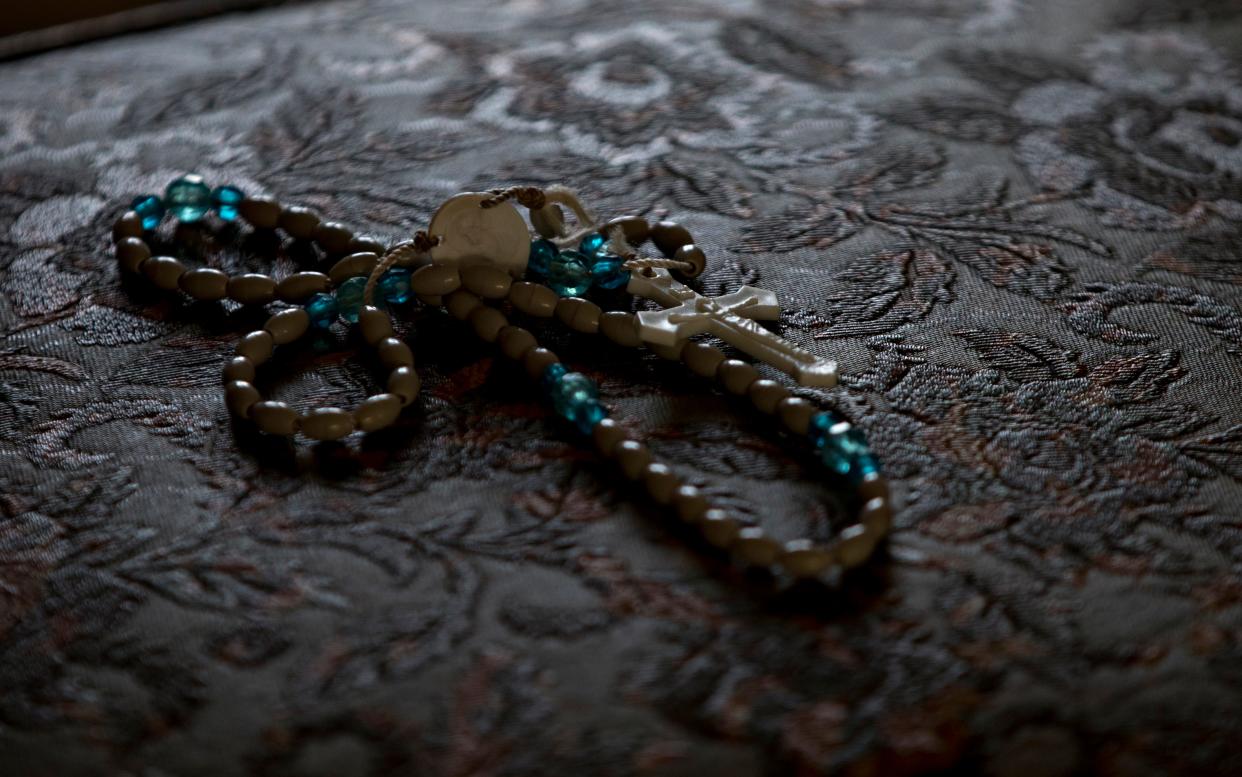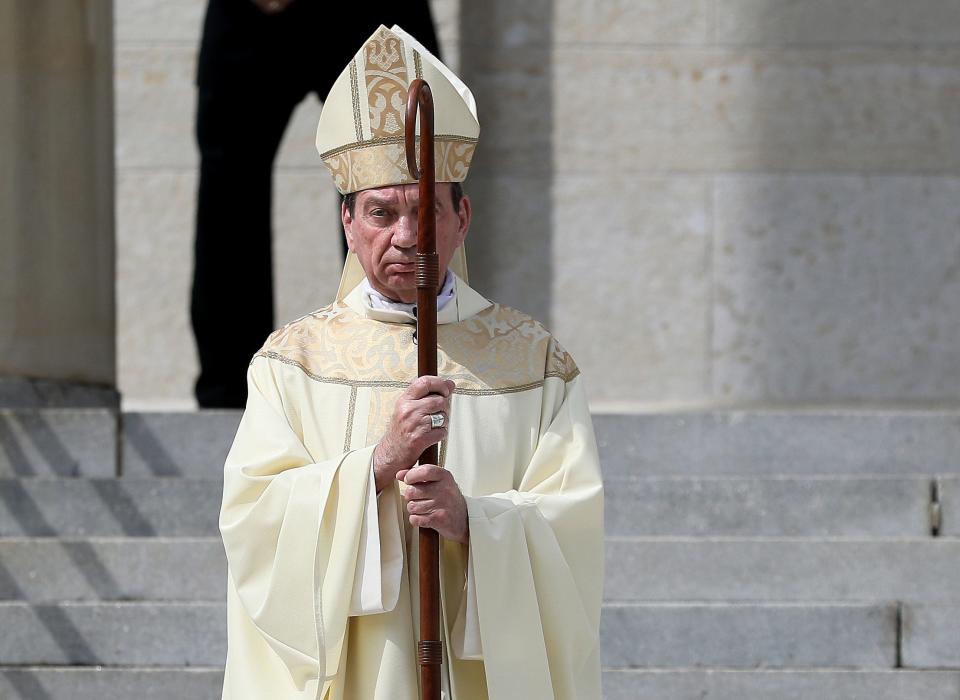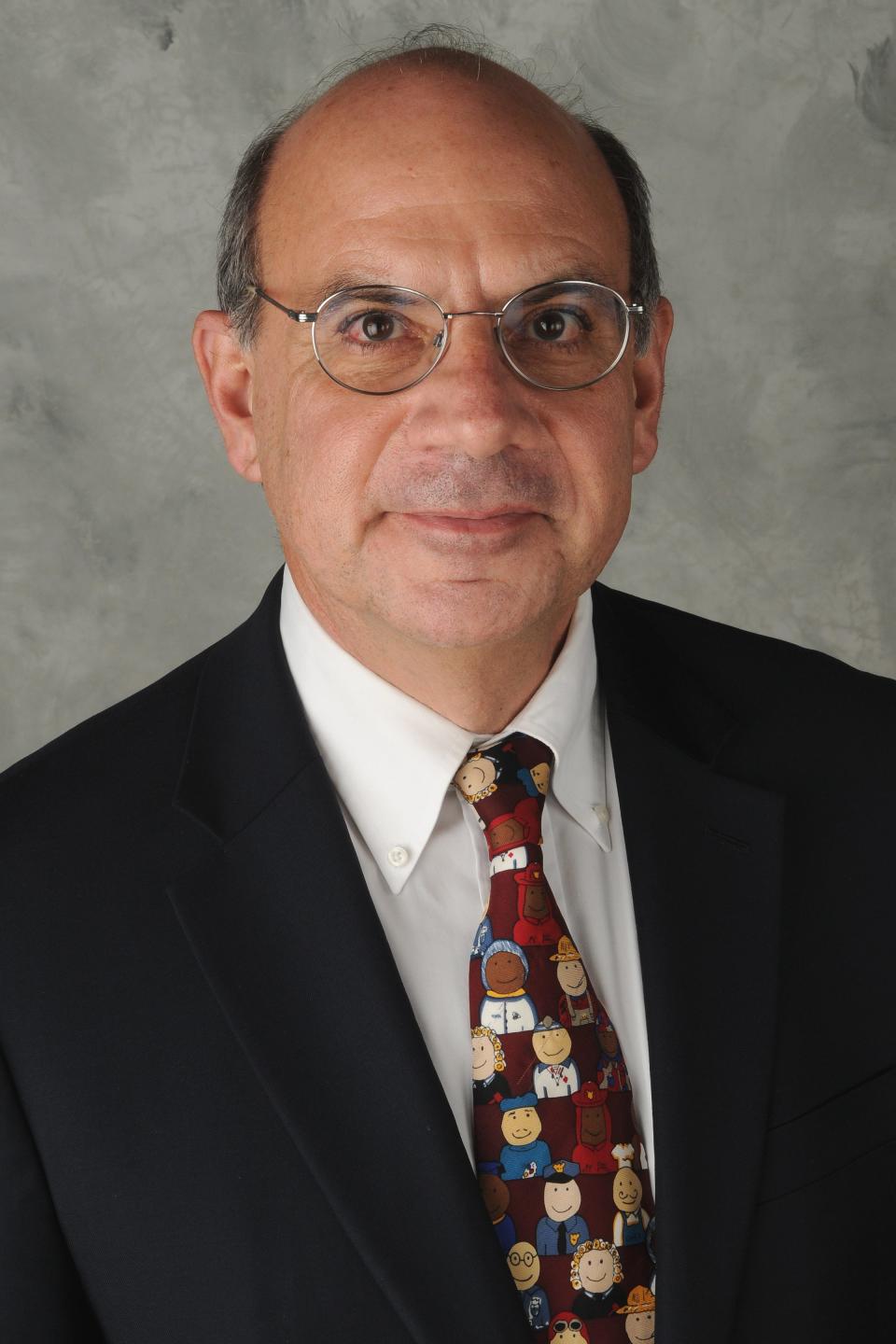What my Catholic mom taught me about abortion | Opinion

I still have the rosary Archbishop Daniel Pilarczyk handed to me. He knew I was raised and educated as a Catholic. He called me to his office in the 1990s and asked me to stop serving as the lawyer for Planned Parenthood and other abortion providers in Ohio. He warned me that I would go to hell. I commended him on the great work the Archdiocese was doing with Vietnamese and other refugees and on other social action efforts in Cincinnati. But I refused to stop representing reproductive health providers. We remained civil. We were both early risers, and I often stopped and chatted with him during his walks downtown. He knew my mom was a devout Catholic. The rosary, he explained, was for her.
My mom loved that rosary. When she was alive, she slept with a well-worn, seven-volume set of Butler’s "Lives of the Saints," next to her bed. She was also a principled, independent thinker with years of experience as an OBGYN nurse in a busy Cleveland hospital. When I first told her I was representing abortion providers, she enthusiastically supported me. Before Roe v. Wade legalized abortion, she had treated numerous women in serious life-threatening circumstances resulting from attempted illegal abortions. Some of those women were victims of rape and incest.
She also assisted at many births where the baby was born with vital organs outside its body or with some other diagnosed condition that caused the prompt death of the baby after birth. She stood with and cried with these women in their moments of intense agony and pain. She was convinced that women needed the power to decide whether to carry their own pregnancies and take on these risks. My mom had six kids. Like many Italian Americans she wanted even more. She knew that many women would not choose abortion, but she firmly believed that each woman - not the government - needed the power to make that decision.

In his majority decision in Dobbs v. Jackson Women's Health Organization, Justice Samuel Alito said that each state should now decide for itself whether to allow abortions. Thirteen state supreme courts have already declared that their state constitutions protect a woman’s right to reproductive freedom, including the decision to secure an abortion. In Ohio, a common pleas judge has decided that the Ohio Constitution already protects abortion rights through the state’s due process clause, Equal Protection and Benefit Clause and the 2011 Health Care Freedom Amendment to the state constitution. But that decision is being appealed. A similar ruling protecting abortion under the Iowa constitution was reversed when the composition of the Iowa supreme court changed. As Dobbs itself demonstrates, court rulings can be reversed.
The amendment we will vote on in November, on the other hand, allows us to make the amendment a permanent part of the Ohio Constitution. My mom would like that.
Archbishop Schnurr on abortion: The Church must not remain on the sidelines in November
Archbishop Schnurr (Pilarczyk’s successor) recently claimed that the proposed amendment would allow abortions throughout the nine months of pregnancy. Not so. The amendment to Article I, Section 22 of the Ohio Constitution protects abortion up to the point of viability or when the fetus can survive outside the uterus. After that, abortion is allowed only to protect a woman’s life or health. Viability is a concept very familiar to Ohio doctors, lawyers and judges. The amendment as worded fits perfectly with the existing treatment of fetuses in other areas of Ohio law. For example, under long-standing tort law if a pregnant woman is killed in a car wreck, the driver who strikes her is liable in damages for the life of the fetus only if it is viable at the time of the injury.
Archbishop Schnurr calls the amendment "extreme." Actually, it is the archbishop’s position that seems extreme. His no vote would allow the government to block a woman’s access to the morning after pill and other forms of contraception. His no vote would block fertility treatments to a family that seeks to get pregnant and have children. His no vote would block access to all pre-viability abortions, even those involving fetal anomalies incompatible with life and those resulting from rape or incest such as the recent case of the Ohio 10-year-old rape victim who had to go to Indiana for abortion services.
My mom was not extreme. She knew these were tough, personal decisions. She trusted women, not the government to make them. I miss my mom. All 4-feet-11-inches of her. If she were alive and back in Ohio, she would vote yes on the amendment in November.
Al Gerhardstein is a semi-retired attorney in Cincinnati.

This article originally appeared on Cincinnati Enquirer: What my Catholic mom taught me about abortion | Opinion

